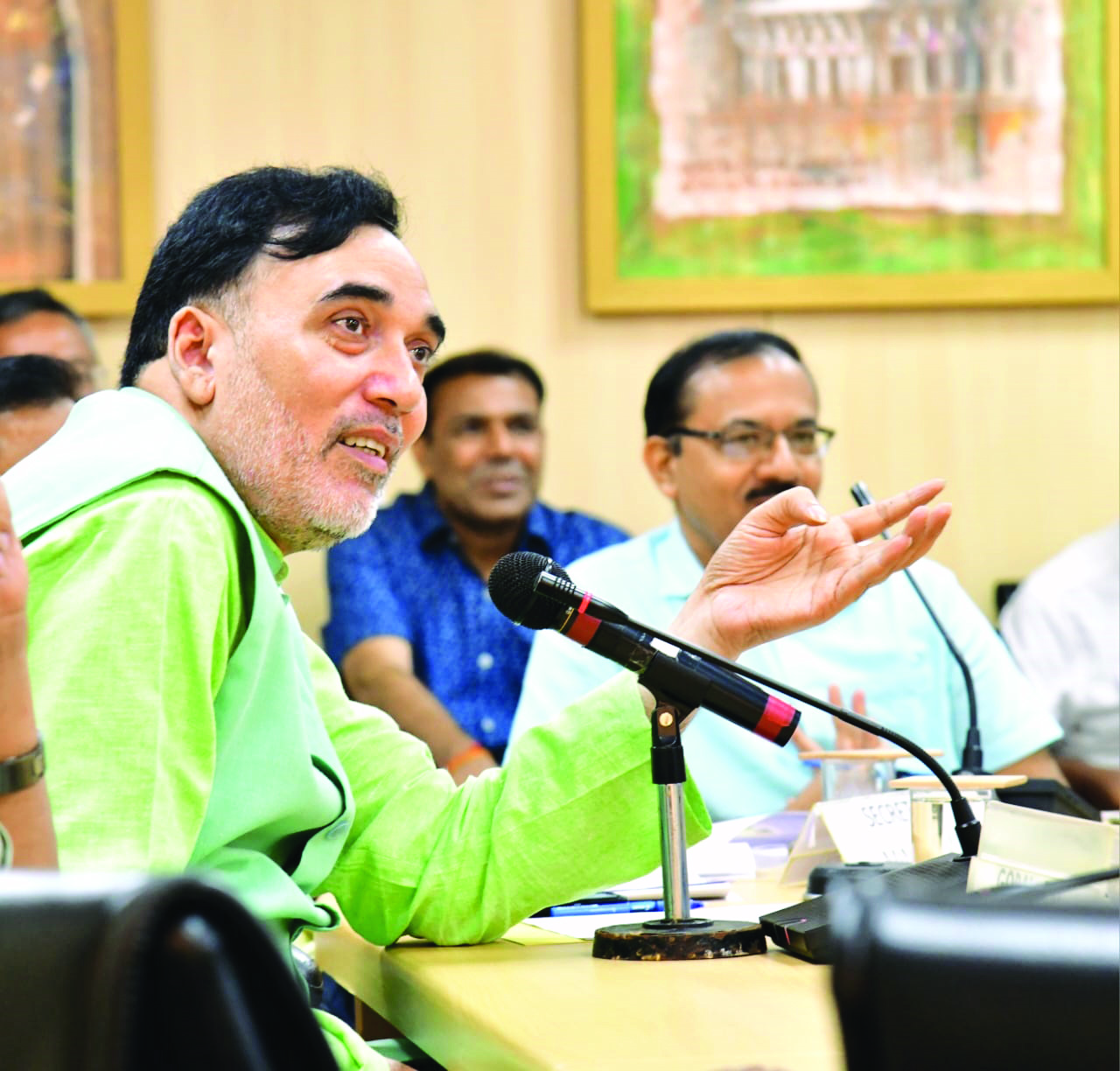Battle against Delhi’s pollution requires collaboration, says Rai

New Delhi: Delhi’s Environment minister Gopal Rai has recently criticised the Central government for its perceived lack of cooperation in addressing the national Capital’s severe winter air pollution. The criticism follows a request by Rai for a meeting with the Union Environment minister to discuss artificial rain, a method reportedly successful in reducing pollution in other countries. Rai emphasised that the battle against Delhi’s pollution requires collaboration rather than conflict.
During a press conference, Rai accused the BJP of obstructing progress by reacting negatively to his appeal for cooperation. “When I wrote a letter to the Union Environment Minister requesting a meeting to discuss artificial rain in Delhi, the BJP responded with hostility,” said Rai. He elaborated that the Delhi government is prepared to cover all costs related to the artificial rain initiative but requires numerous permissions from central agencies.
Rai noted that in August 2024, Delhi’s Air Quality Index (AQI) was relatively stable, ranging between 50-70, due to continuous rainfall. He suggested that a similar approach could be useful in winter when pollution levels typically spike. “Artificial rain has been successfully implemented during emergencies in places like China during the Olympics, Malaysia during a forest fire, and Lahore, Pakistan,” he stated.
The Delhi Environment minister highlighted that only 31 per cent of the pollution affecting Delhi originates within the city, with the remaining 69 per cent coming from neighboring states ruled by the BJP, including Uttar Pradesh, Haryana, and Rajasthan. “The solution to Delhi’s pollution problem lies in joint efforts from all concerned parties, not in creating barriers,” Rai asserted.
Rai also defended Delhi’s environmental initiatives, citing data showing an increase in the number of days with good air quality from 110 in 2016 to 206 in 2023. He attributed these improvements to measures such as 24-hour electricity, the introduction of electric buses, and the transition of industries to PNG. “Our government’s efforts have led to a noticeable reduction in pollution, but further cooperation is necessary to tackle the seasonal spikes,” he explained.
Despite these efforts, Rai expressed frustration with the Central government’s lack of engagement. He noted that previous requests for meetings with the Union Environment minister have gone unanswered. “For the past five years, I’ve been trying to meet with the Union Environment Minister to discuss pollution control.
Unfortunately, these requests have been ignored, and even simple replies to letters have been delayed,” Rai lamented.
In response to criticisms regarding the efficiency of smog towers, Rai defended the Delhi government’s actions, highlighting that the Supreme Court had mandated the installation of these towers as a pilot project. He challenged the BJP to provide a comparative report on the performance of smog towers installed by both the central and Delhi governments.
Rai also criticised the Central government for not matching Delhi’s environmental initiatives. “We’ve introduced 2,000 electric buses and increased forest cover, while neighbouring BJP-ruled states lag behind in similar efforts,” he noted. He further pointed out the disparity in electricity supply and the challenges faced by workers in neighboring areas.
The Delhi government plans to discuss these issues in an upcoming all-department meeting scheduled for September 5, where suggestions from BJP and Congress will be considered. Rai emphasised the need for collective action, stating, “Our goal is to reduce pollution in Delhi. We will seek the Central government’s cooperation as many times as needed to achieve this goal.”
While on the other hand, informal workers in Delhi shows worry on facing severe health impacts due to the city’s high pollution levels, exacerbated during peak periods. A study conducted by Help Delhi Breathe and Mahila Housing Trust highlights the disproportionate effects of air pollution on informal workers, particularly those residing near landfill sites.
The study found that 94 percent of respondents believe air pollution negatively affects human health, while 91 per cent reported experiencing sickness or discomfort during periods of poor air quality.
“The money that we earn goes all into hospital rounds during the pollution time that badly affects our finances.” shared Sanjay, a construction worker who suffers from frequent health problems due to pollution exposure.
Rupa, a sanitation worker from Okhla, echoed these concerns, stating, “As a mother of two, my family depends on my earnings. When pollution peaks and work is halted, it creates significant health and financial challenges for us.” She noted that last year, when construction work was paused due to pollution, her husband, who works as a labourer, was unemployed for months.



